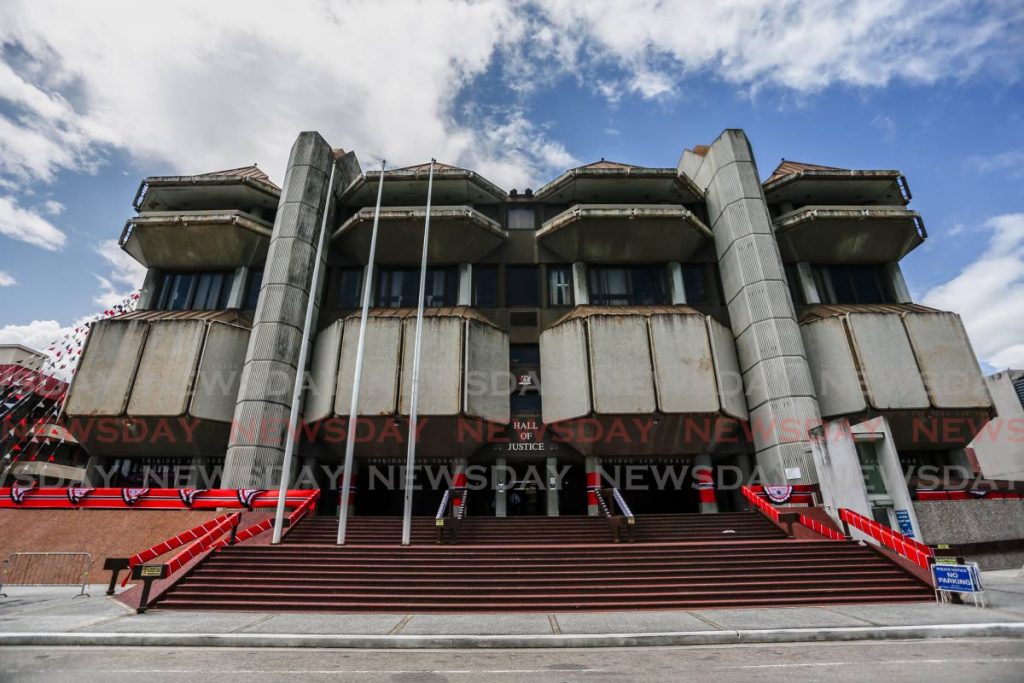Judge blanks plea by Venezuelan mother, child, 4, to stop deportation

AN appeal is expected to be filed against a judge’s decision to deny a Venezuelan mother and her four-year-old daughter a temporary reprieve from deportation until their constitutional claim is determined.
On Wednesday Justice Robin Mohammed dismissed the injunction application of the mother, her daughter and the mother’s partner, a Trinidadian.
He held that neither the mother nor the child will suffer any prejudice in the constitutional motion if they are deported.
The application for interim relief sought by the three was similar to that asked for by an 11-year-old Venezuelan girl earlier this month. In the latter, the judge refused to grant the injunction, citing breach of immigration laws and covid19 regulations.
That ruling by Justice Frank Seepersad has since been overturned and is to be heard by another judge. The injunction was also granted by the Court of Appeal on Monday.
Mohammed quoted Seepersad’s findings on the effect the covid19 pandemic on Trinidad and Tobago, this country’s closed borders and the migrant crisis.
“In this court’s view, the greater risk of injustice lies with granting the interim relief sought. It is not in the public interest to grant the interim reliefs,” he said.
Mohammed said because of an influx of Venezuelan nationals, the Government registered those here illegally and illegally in May and June last year, and since then, had implemented a visa system for those who wished to enter TT.
The mother entered TT illegally in April 2019. However, she received a ministerial permit in October 2019. She left TT in August and on her re-entry the next month, she was held in Barrackpore with other Venezuelan migrants, for breaching the terms and conditions of the ministerial permit.
It was cancelled and a deportation order was issued in November.
While being held at the detention facility at the heliport in Chaguaramas, the mother tested positive for covid19.
“In this court’s view, the facts as set out, if true, point to a blatant disregard for the local laws of this country and highly irresponsible behaviour in this current state of a pandemic.
“While the dispute of the facts is to be tested at trial to ascertain the truth, the signed admission by the second claimant provides prima-facie evidence that adds weight to the defendants’ case.
“There is, therefore, an uphill challenge by the second claimant to negate the strong evidence presented thus far by the defendants,” Mohammed said.
In their constitutional claim, the mother and child sought several declarations for alleged breaches to their rights to private and family life, not to be arbitrarily detained, a right to be told of the reason for their arrest and detention, the failure by immigration officials to hold a special inquiry, and a right to a fair hearing, among others. They asked to be immediately released on an order of supervision and for an injunction preventing their deportation. They also want monetary compensation.
In his decision, Mohammed noted, “The court notes that it is the obligation of the Government to secure the borders and the public interest of its citizenry.
“In the case at bar, this public interest element is the second defendant’s ability to protect our borders and by extension the citizenry of this republic from harm or threat of harm, which is now further compounded by the pandemic.
“Based on facts put forward in this matter, the second claimant tested positive for covid19 – which is the very reason why our own nationals cannot return home without exemptions and why the entire world is in its current state of crisis.
“The court is therefore of the view that it would not be just or convenient to grant the interim reliefs sought so as to restrain the State from enforcing the existing domestic laws of the country. Additionally, the court is not satisfied that the matters raised in the constitutional motion have a likelihood of success for the court to adopt the exceptional course of restraining the second defendant from enforcing the applicable domestic law,” Mohammed said in his ruling.
In finding they will suffer no prejudice in the hearing of their constitutional challenge if they are deported, Mohammed reminded of the practice directions which allow for electronic hearings.
“The substantive constitutional matter can proceed without the second and third claimants’ physical presence.
“In fact, during this pandemic, the courts in this jurisdiction, and indeed throughout the world, are currently utilizing several virtual platforms including Skype, Zoom, Google Meet and Microsoft Teams to conduct hearings so as to comply with health protocols, particularly, social distancing, with the aim of preventing the spread of covid19,” he said.
He said if the two are successful at trial, they can apply to the minister for permission to re-enter TT.
The mother, her Trinidadian partner, and her child are represented by attorneys Farai Hove Masaisai, Antonya Pierre and Jennifer Farah-Tull. Senior Counsel Reginald Armour, Linda Khan and Ryanka Ragbir appeared for the Attorney General and chief immigration officer.


Comments
"Judge blanks plea by Venezuelan mother, child, 4, to stop deportation"